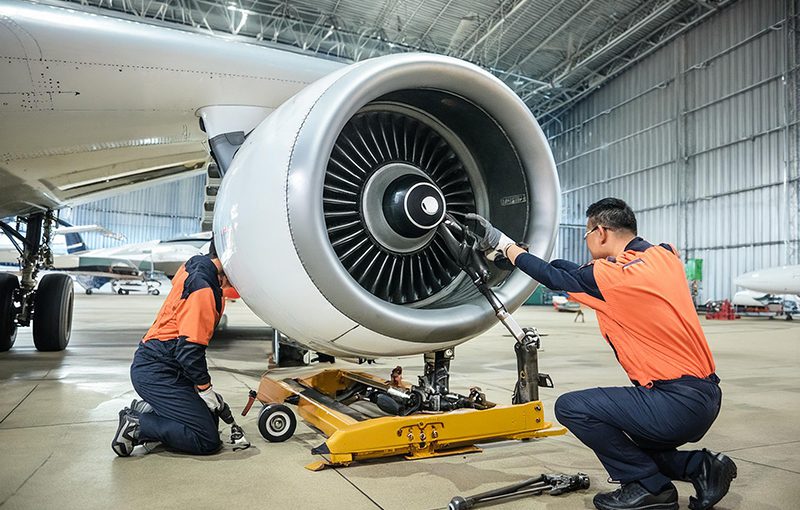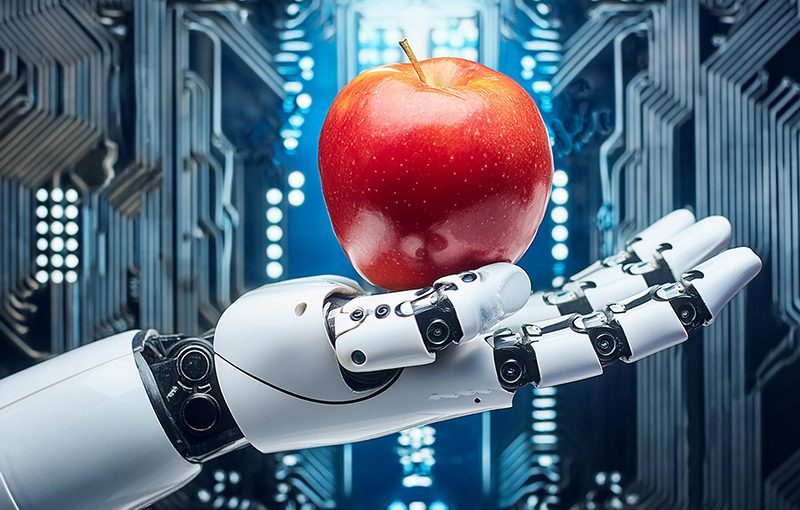In the sprawling expanse of our planet, areas rich in biodiversity are essential to sustaining life’s intricate balance. These regions teem with a variety of species and ecosystems, each playing a unique role in the ecological network. Analogous to these ecosystems is the intricate universe within a company—an ecosystem of departments, staff, teams, and processes. Within this corporate biosphere, an Enterprise Resource Planning (ERP) system functions like the gravitational force that keeps planets in orbit, harmonizing diverse business software components to sustain and nurture the company’s growth.
Tag: HR system
Singapore’s recycling rate has witnessed a slump, descending to 52% in 2023, marking a regression from the progress seen 10 years ago. This downturn has motivated individuals and businesses alike to cast a more scrutinizing eye on the environment and assess the role they play in its preservation. Against this backdrop, the significance of business software such as Enterprise Resource Planning (ERP) systems has gained prominence, specifically in terms of environmental conservation within the bustling business hub of Singapore.
In the rapidly evolving business landscape, expanding into global sectors has become a strategic imperative for many companies seeking growth and diversification. Taking a business global, however, comes with its own unique set of complexities and challenges. Countries like Germany, Switzerland, and Croatia are not just attractive destinations due to their robust markets, but also because of their particular legal and cultural frameworks which require a nuanced approach. One key aspect that must be managed with unparalleled efficiency is human resources. This is where a robust HR system, supported by effective business software, becomes indispensable.
In the ever-evolving retail landscape of Singapore, the adoption of cutting-edge Point of Sale (POS) systems has become indispensable for businesses aiming to thrive. Gone are the days when cash registers and manual inventory tracking sufficed. The year 2024 marks the advent of sophisticated POS technologies designed to streamline operations, enhance customer experience, and drive sales. At the forefront of this technological leap is the transformative power of POS systems, adept at not just processing transactions but also offering comprehensive business management solutions.
In today’s fast-paced business environment, efficient communication and seamless operational processes are crucial for success. This is especially true for bustling commercial hubs like Singapore, where the pace of business demands agility, efficiency, and integration across various technology platforms. At the heart of this technological convergence lie two fundamental components: email and Enterprise Resource Planning (ERP) systems. While each plays a pivotal role in daily business operations, the discussion about integrating them has gained momentum. Let’s delve into what these components are, their separate functions in business, and the dynamics of their integration.
In the dynamic realm of global commerce, businesses from Belgium to France, and beyond, all encounter similar hurdles regarding customer relationship management. Whether operating in the bustling marketplaces of Brussels or amidst the fashion-forward streets of Paris, the ability to manage customer relationships effectively stands as a crucial pillar of business success. This article delves into the importance of nurturing customer connections, strategies to enhance these relationships, and how business software, specifically Customer Relationship Management (CRM) systems, can transform this essential business aspect.
In the fast-paced world of professional basketball, NBA teams rely heavily on strategy, coordination, and utilizing every player’s strengths to win games. Each player’s role, whether it be the star shooter, the strategic point guard, or the defensive powerhouse, is vital to the team’s overall performance. Drawing a parallel to this, in the business arena, especially in dynamic markets like Singapore, a similar approach of strategic planning, coordination, and leveraging strengths is crucial for success. Here, the star player for many businesses, operating in realms from manufacturing to services, is an advanced Enterprise Resource Planning (ERP) system.
In the bustling metropolis of Singapore, businesses are faced with the challenge of navigating a complex and dynamic landscape. Much like the intricate network of streets in this vibrant city, managing a workforce effectively requires a sophisticated map – in this case, a robust Human Resources (HR) system. As Singapore continues to thrive as a global business hub, the demand for advanced business software, especially in human resources, has become crucial.
In the fast-paced world of modern air travel, airports are not just transit points but complex operations hubs that manage a vast array of tasks, from flight scheduling and baggage handling to security, maintenance, and customer service. Just like a well-oiled machine, every part of an airport’s operation needs to work in harmony to ensure safety, efficiency, and passenger satisfaction. This is where the multipurpose and multitasking capabilities of Enterprise Resource Planning (ERP) systems come into play, transforming the way airports operate and bringing a new level of proficiency to the aviation industry.
When an environmental catastrophe like an oil spill occurs, the immediate focus is on rapid and effective response measures. Such incidents, unfortunately, have devastating effects on marine life, water quality, and local economies, making swift action imperative. Managing the influx of volunteers who come forward to help during these crises is a monumental task. Coordinating these willing but often untrained individuals requires a sophisticated approach; this is where a Customer Relationship Management (CRM) system becomes invaluable.
In an era where the digital transformation of industries is more than a trend – it’s a necessity – the role of advanced business software in bolstering operations cannot be overstated. For entities as critically coordinated as the Marine Police, the importance of real-time, efficient, and accurate communication systems is crucial. Their operations, often dealing with emergent and swiftly changing scenarios, highlight an essential feature of modern business software: the Business Alert feature in ERP (Enterprise Resource Planning) systems. This powerful feature, similar in necessity to the alerts a Marine Police unit might depend on for immediate action, serves as an indispensable tool for businesses across sectors aiming for the pinnacle of operational efficiency and proactive management.
The travel industry, a vital component of the global economy, has always been at the forefront of adopting innovative approaches to enhance its operations and offer unforgettable experiences to travelers. Slovenia, with its picturesque landscapes ranging from the Alps to the Mediterranean coast, exemplifies a destination that has significantly benefited from such innovations, especially in terms of human resource (HR) management within its travel sector. This blog delves into the operational nuances of the travel industry, the unique HR challenges it faces, and how business software, exemplified by solutions like Multiable M18 HCM, is revolutionizing this domain.
As golf enthusiasts from around the world focus their attention on the U.S. Open, it’s impossible not to marvel at both the skill of the players and the seamless orchestration of the event itself. Hosting a major tournament like the U.S. Open requires an unbelievable level of organization, coordination, and precision – qualities that would resonate well within any business environment. In many ways, managing a company is like navigating the fairways; to be successful, one must avoid hazards, make strategic decisions and consistently aim for excellence. This is where a robust Enterprise Resource Planning (ERP) system comes into play, acting as the caddie that carries the clubs, offers advice, and ultimately, supports the play of the game.
In an era defined by intense competition and elevated customer expectations, airline companies are under immense pressure to deliver unparalleled service while effectively managing operations. Today’s airline industry navigates a complex landscape of logistical, regulatory, and operational challenges that often complicate the task of maintaining customer satisfaction and operational efficiency. Amidst these issues, business software, particularly Customer Relationship Management (CRM) systems, stands out as a crucial tool in fine-tuning these operations and propelling the business forward.
As families in Singapore gather to celebrate Father’s Day, it’s a time of acknowledgment, gratitude, and reflection on the pivotal roles fathers play in our lives. They are often seen as the bedrock of guidance, support, and wisdom. In a sense, this familial structure, built on strong foundations, mirrors the essential structure within businesses that is key to their stability, growth, and adaptability; this cornerstone is none other than the Human Resource Management System (HRMS).
In an era where the boundary between the digital and the tangible is increasingly blurred, innovations such as Apple’s Vision Pro lead the way. Vision Pro is a landmark in immersive technology, intimately integrating digital content into our physical spaces. It’s an innovation that transforms our sensory experiences — you don’t just see it; you hear and feel it, too. This immersive technology has set a standard for what’s possible, framing a future where our digital interactions are as tangible as any physical object.
In the vibrant economic tapestry of Asia, nonprofit organizations play a pivotal role, addressing crucial societal needs with agility and dedication. In the dynamic landscape of 2024, nonprofit organizations in Singapore face an array of challenges in managing their financial operations efficiently. The intricacies of fund accounting, donor management, regulatory compliance, and budget allocation demand a sophisticated yet user-friendly solution. Recognizing these hurdles, we dive deep into the world of accounting software specifically designed for nonprofits in Singapore, spotlighting the remarkable capabilities of Multiable M18 ERP along with other notable solutions such as QuickBooks, Sage, Xero, and Zoho Books.
Just as iOS 18 has revolutionized the iPhone, making it more personal, capable, and intelligent than ever, modern ERP systems are bringing about similar transformations in the business world. These advanced systems, powered by artificial intelligence (AI), tailor business processes to be more adaptive, insightful, and effective, aligning closely with the overarching goals and real-time operational needs of companies.
Picture this: A packed football stadium on a crisp evening, tens of thousands of fans cheering for their team. Now, imagine if every interaction those fans have — from buying a jersey to tweeting their support — could be used to enhance their experience and loyalty to the club. This is where Customer Relationship Management (CRM) systems emerge as a game changer, not just in sports but remarkably so in the retail business sector.
In the fast-paced world of professional sports like the NBA, team management goes beyond physical training and talent scouting. Similarly to any large-scale business operation, sports franchises require sophisticated management systems to handle everything from player statistics to merchandise sales. This is where Enterprise Resource Planning (ERP) systems come into play, offering a strategic advantage by integrating various business processes into a single, coherent information system. By doing so, teams can make informed decisions quickly, much like a well-executed basketball play.
In our ever-evolving digital world, businesses in bustling metropolitans like Singapore face unforeseen challenges that can disrupt their operations significantly. One such unforeseen challenge is a power failure. When the lights go out, and the screens go black, the immediate cessation of work can lead to cascading effects on productivity, data integrity, and ultimately, the bottom line. However, metaphorically speaking, organizations without a robust Human Resource Information System (HRIS) are like entities grappling in the dark, trying to manage and optimize their workforce amidst a power outage.
In the bustling streets of Singapore, coffee shops serve as vital hubs for both the city’s fast-paced workforce and its vibrant community of locals and tourists alike. These establishments are not just about serving a cup of coffee; they embody a complex operation that demands meticulous management of inventory, customer service, staffing, and financial operations. This intricate dance of activities calls for a robust solution that can streamline processes, enhance efficiency, and drive growth. Enter the world of Enterprise Resource Planning (ERP) systems – the innovative business software tailored to redefine coffee shop management in the sophisticated market of Singapore.
In the heart of the dense rainforests of Sumatra, the Corpse Flower unfurls with an infrequency that commands attention, much like a business opportunity that arises in the competitive market of Singapore. However, while the flower is notorious for its fleeting bloom and pungent aroma, a robust Customer Relationship Management (CRM) system represents the flourishing counterpart in the business landscape – an essential tool that ensures the growth and sustainability of customer relationships with an appeal that is far from ephemeral.
In the contemporary era of technological advancement, Artificial Intelligence (AI) has emerged as a pivotal innovation, transforming the landscape of various industries. But what exactly is AI? At its core, AI refers to the simulation of human intelligence in machines that are programmed to think like humans and mimic their actions. AI technology can engage in activities that require human intelligence such as learning, reasoning, problem-solving, and even understanding human language. The integration of AI into business software, particularly Enterprise Resource Planning (ERP) systems, stands as a revolutionary stride, especially in bustling business hubs like Singapore, where efficiency and innovation drive competitiveness.
In the bustling streets of Singapore, amidst the skyscrapers and the vibrant markets, a unique culinary adventure awaits the daring: IKEA’s durian ice cream. This unusual concoction, blending the pungent, custardy taste of durian with the cold, creamy texture of ice cream, serves as a metaphor for innovation and boldness in business. Just as IKEA ventured into the realm of exotic flavors to delight its customers, companies today are exploring new territories in human resource management (HRM) with the help of advanced business software solutions.
In the ever-surprising waters of Singapore, a very rare sight was recently captured, thrilling the curiosity of many. A longnosed stargazer, a peculiar fish with its face poking out of the sand, was observed on the shores, creating a buzz of amazement and a touch of amusement among the observers and online communities alike. This unique sighting was shared by Dennis, the founder of “The Untamed Paths,” who had stumbled upon this elusive creature during an intertidal exploration. The fish, known for burying itself in the sand with only its head exposed, as if gazing at the stars, waits patiently for its prey. While its appearance may be somewhat intimidating, this discovery in Singapore waters has evoked a deeper sense of wonder and appreciation for the natural world, emphasizing the rich biodiversity that surrounds us.
In the complex dance of modern commerce, each step, spin, and stance represent the interplay between a business and its clients. Much like a dance performance, where precision and fluidity are crucial, companies in Singapore struggle to maintain this balance while executing their customer relationship management (CRM) strategies. At the core of this intricate routine is CRM business software – an essential partner in the quest for customer satisfaction and loyalty.
In the bustling heart of Hong Kong, a symbol of adaptation and progress stands tall: the Immigration Tower. For years, it has been the nerve center for the Immigration Department, overseeing a plethora of critical services. However, in a significant move, detailed on an official announcement on June 6, 2024, the headquarters made a monumental shift from the iconic Immigration Tower at 7 Gloucester Road, Wan Chai, to a new location in Tseung Kwan O New Territories. This change, scheduled for June 11, embodies more than just a change of scenery. It reflects a deeper transformation within the organization – a transformation that underscores the relentless pursuit of efficiency, effectiveness, and enhanced service delivery in the digital age. Much like the strategic revamping of the Immigration Department, businesses worldwide are recognizing that transformation is not only normal but crucial for success. At the heart of such transformations, particularly in terms of operational efficiency and strategic decision-making, lies the adoption of Enterprise Resource Planning (ERP) systems.
As the sun rises on 2024, Singapore’s vibrant economy brings forth the challenge of selecting an exemplary CRM system that not only matches but elevates the intricacies of modern business operations. In an era where Customer Relationship Management (CRM) tools have transcended the realm of basic contact management to become predictive, automated, and personalized at scale, the selection in Singapore must be as strategic as it is precise.
In the heart of summer, amidst the hustle and bustle of modern corporate life, lies a traditional celebration that has transcended centuries to remind us of the importance of community, teamwork, and cultural acknowledgment in the workplace. The Dragon Boat Festival, a vivid tapestry of ancient customs, spirited races, and communal feasting, serves as an emblematic backdrop to explore how Human Resource (HR) systems have evolved to not only manage but enhance and nurture company culture in an increasingly digital world. This festival, deeply rooted in Chinese history, symbolizes the values of loyalty, strength, and resilience; qualities that are profoundly relevant in today’s corporate landscape. It prompts a compelling discussion on the integration of business software, particularly innovative HR systems, in cultivating an environment where traditional values meet modern efficiency.





























